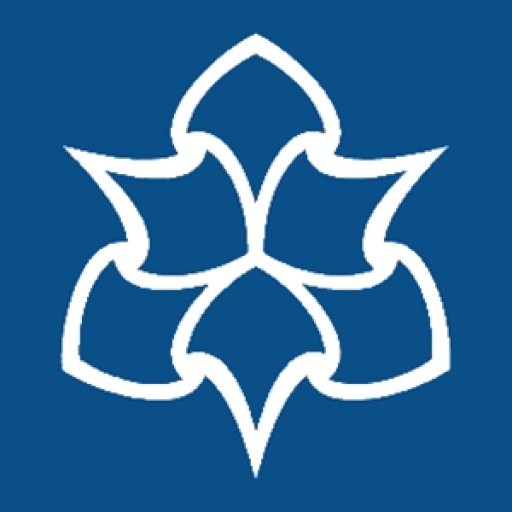Photos of university / #uclanuni
This degree is perfect if you have aspirations to teach history at secondary school level or beyond. The Education aspect of the course allows you to develop an understanding of educational theories, policies and practice, and apply these to past and present educational issues, whilst the History modules cover different periods, topics, places and approaches, from early modern times to contemporary history; different areas including North America, Europe, Asia and Africa; and additional insights into museums and heritage. This means you will be well equipped with the skills and knowledge needed to teach with a high level of subject expertise, and you will also have broader skills as a team-worker and communicator which will be huge assets in any graduate workplace.
Within the History modules you will cover a wide range of material, which will provide you with useful historical topics that are part of the school curriculum at both GCSE and A Level. In addition, you may also wish to undertake modules with a more practical focus such as the Community History Project. The course has strong elements of local, national and international history.
Students can take the Community History Project, which involves them working to a project brief devised by a real client, undertaking relevant research and feeding back their findings through a display, exhibition, teaching pack, archive guide or town trail.
A 3 year degree qualification typically comprises 360 credits and each 20 credit (a standard module) equates to 200 hours of study, which comprises of a mixture of lectures, seminars, tutorials, practical sessions and independent study. Independent study is an important aspect of your degree course. The exact combination of study time will be detailed within your module descriptors, and will depend on your option choices.
Course facilities include well equipped classrooms and extensive Blackboard (Virtual Learning Environment) resources for independent study.
Assessment strategies are varied. Modules are assessed by coursework, with no exams, including student presentations (both individual and group), reflective diaries, project work, videos, poster, and reflective essays.
Year 1
- Introduction to Education Studies
- Education for Everyone?
- Observing Education in Action
- Understanding History
And a choice of 2 modules from the following:
- Colonies to Nation: America c.1700-1945
- State and Society: Europe c 1815-1914
- Nations and Empires in Asia: China, India, Japan and Thailand 1857-1949
- History, heritage and society
- British Politics
Year 2
- Sources and Methods
And a choice of 3 Education modules from the following:
- Preparing for Academic Writing and Research in Education
- Models of Teaching and Learning
- Sociology and Education
- Experiential Learning in Educational Settings (a placement module)
- Representations of Education in Literature and Film
- Diversity and Inclusive Practice with Children and Adults
- Student Initiated Module
And a choice of 2 History modules from the following:
- Community History
- 'The good the bad and the downright evil': perceptions of crime and punishment in England 1700-1900
- America since 1945
- Radical Politics and Political ideas in Britain: from Lloyd George to Tony Blair
- Insight into Museums
- 1945-89: History, Society and Conflict
- America and the World, 1898-2001Cold War in Asia
- History of Political Ideas
Year 3
- ED3991 Dissertation or ED3993 Double Dissertation
- OR History Dissertation or Extended History Dissertation plus Education, Society & Culture in England c.1790 - 1914
And a choice of modules from the following:
- Education in Developing Countries
- The Education of Vulnerable Children
- Policy and practice in Educational Settings
- Families, Schools and Society
- The professional Role and its Context
- Learning Curriculum and Assessment
- Reflective Practice in Educational Settings
- Student Initiated Module
- India, Pakistan, Afghanistan and the Middle East since 1945: International Conflict and Democracy
- African Nationalism and Independence 1921-1982
- Riots and Revolution: Popular Politics and the English Working Class c1770-1848
- A Place Apart? The Northern Ireland Troubles
- History, Politics and Deafness
- Kennedy, Johnson and the World: US Foreign Policy 1961-69
- Education, Society and Culture in England, c. 1790-1914
- Work Placement
Our typical offer is 104 - 112 UCAS Points. We operate a flexible admissions policy and treat everyone as an individual. This means that we will take into consideration your educational achievements and predicted grades (where applicable) together with your application as a whole, including work experience and personal statement. General Studies accepted.
BTEC Extended Diploma: Distinction, Merit, Merit
BTEC Diploma: Distinction*, Distinction - Distinction*, Distinction*
Pass Access to HE with 106 - 112 UCAS Points
International Baccalaureate: Pass Diploma including 104 - 112 UCAS points from Higher Level Subjects
IELTS: 6.0 with no score lower than 5.5
GCSE: 5 at grade C/4 including Maths & English or equivalent
Want to improve your English level for admission?
Prepare for the program requirements with English Online by the British Council.
- ✔️ Flexible study schedule
- ✔️ Experienced teachers
- ✔️ Certificate upon completion
📘 Recommended for students with an IELTS level of 6.0 or below.









